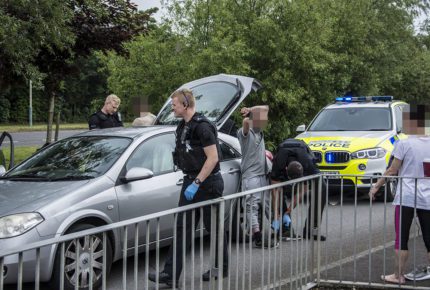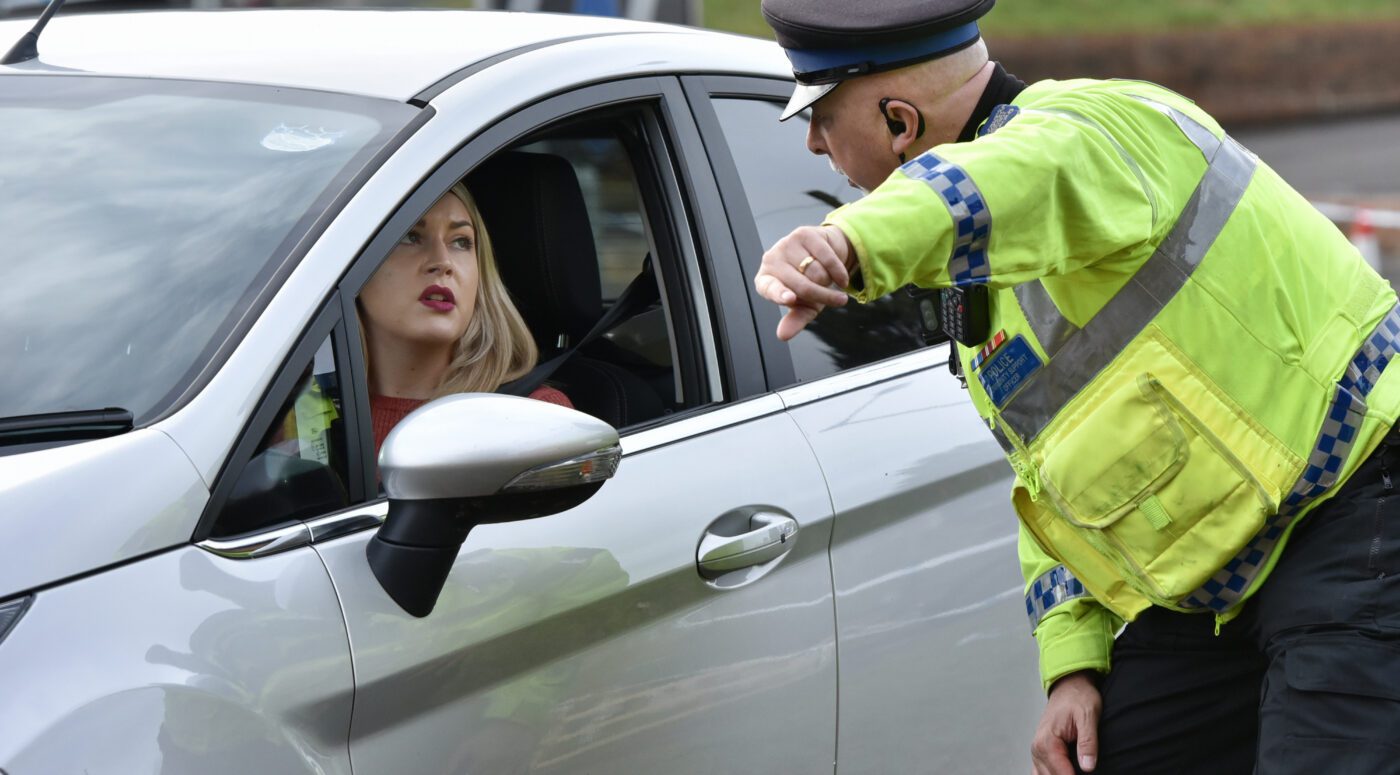

The law on insuring vehicles in England and Wales is very simple. The basic rule is that in order to use your vehicle on roads and in other public places, you must have valid motor insurance for that vehicle. The only real exceptions to this are if your vehicle is kept off the road and declared as such via the Statutory Off Road Notice (SORN) scheme as administered by the Driver and Vehicle Licensing Authority (DVLA), which is the branch of government responsible for regulating drivers and vehicles in the United Kingdom. If you have received a notice that you are being charged with driving with no insurance, there are a couple of things that you might be able to do, but for most people the reality is that they will face a punishment of some sort. This is because the UK has a very strict policy of continuous insurance enforcement, and the law does not permit many exceptions to this. In this article, we look at the law on driving with no insurance, outline what the possible sentences/punishments for driving with no insurance could be, and outline some of the defences that might be available to you if your situation warrants them.
What is the offence of driving with no insurance?
Generally speaking, it is illegal to drive a vehicle on a road or in a public place in England and Wales without having insurance on that vehicle. The minimum insurance that you are required to get is third party insurance (which means that in the event of damage being sustained to a third party, their damage is covered by the insurance but any damage to you is not). If you do not have such insurance, there are penalties that you could face. You can be prosecuted for this offence even if you did not know that you were not insured at the time.
But it is not just when you are driving on a road or in another public place that a driving with no insurance offence could occur. The following are also offences:
- Allowing someone else to use your vehicle without appropriate insurance
- Having a vehicle parked on the road without insurance (this still counts as ‘using’ the vehicle even though you are not driving it)
Driving without insurance is an offence under Section 143 of the Road Traffic Act of 1988. Despite there being an estimated 1 million uninsured drivers in the UK and there being tens of thousands of driving with no insurance convictions each year, this is still seen as a serious offence by the courts. What’s more, there can be some very serious personal and financial consequences for drivers and their victims if something goes wrong on the roads and one party is uninsured. It is, after all, not just your vehicle that could be damaged if you are involved in a crash or other incident; you could injure a person, or their property, and the consequences of doing either could be severe and expensive to remedy.
Note that when you are charged with driving without insurance, it is not the prosecution’s job to prove that you had a valid insurance certificate at the time of the alleged offence. Unlike most crimes, it is actually your obligation to prove that at the time of the alleged incident, you held a valid certificate of motor insurance.
Are there any exceptions to the requirement for driving with insurance?
It is not in the government’s, nor the public’s, best interest for there to be exceptions to the rule that you must have valid insurance in order to drive a motor vehicle on a road or in a public place. That being said, there are some instances where driving without insurance is legal, but these are very narrow.
The only real exception to the rule is if you are a motor trader. Motor traders are not subject to the continuous insurance enforcement rule when they are in possession of a vehicle that is between registered keepers or is registered as ‘in trade’ with the DVLA. Motor traders typically have different insurances for their businesses, which is why these ‘gaps’ in insurance are permitted when the vehicle is being handled by a motor trader.
What are the possible sentences for driving a vehicle uninsured?
If you have been charged with driving a vehicle uninsured, it is most likely the case that this happened at the roadside with the police officer who pulled you after discovering that you did not have insurance. That said, it could also be the case that you were caught on a camera with Automatic Number Plate Recognition (ANPR) technology.
In either case, you usually will be given the option to accept a fine and a certain number of points on your licence before the case gets any more serious. Typically, the penalty for uninsured drivers is a fixed penalty of £300 and 6 penalty points.
If you contest this, however, and the case goes to court and you are found guilty of the offence, you could face an unlimited fine or a disqualification from driving. Note that the police also have the legal power to take your vehicle, and even destroy it, if it is shown that you were uninsured at the time of the incident. This rarely happens, but the police are more likely to take this course of action if you have numerous warnings or convictions for driving uninsured and you still fail to comply with the rules.
What are the relevant driving penalty codes for driving without insurance?
If you are found guilty of driving without insurance, your driving record will be marked with a special code in addition to any fines that you may face.
Code ‘IN10’ (where the IN indicates that it is an insurance offence) is applied to drivers found guilty of driving without insurance, and that code must stay on the driver’s driving record for 4 years from the date of the offence. This is likely to make insurance more expensive for the driver when they come to insure that or another vehicle.
Are there any defences for driving a vehicle uninsured?
Aside from being a motor trader, there are some narrow circumstances in which you might not be held criminally responsible for driving without insurance. These are:
- If you are an employee and you drove a work vehicle that you thought was insured, but actually wasn’t.
- If your family member told you that the car was insured and you drove the car believing that to be the case, but actually the car was not insured.
- If your insurance was cancelled without your knowledge and through no fault of your own, (such as if the insurance company made a mistake).
Who is responsible for ensuring that the vehicle is insured?
This is an excellent question, and it is one that often raises a sense of unfairness for some people in driving with no insurance situations. The law says that it does not matter who is driving the car, the vehicle’s registered keeper must ensure that the vehicle is appropriately insured.
Appropriately insured means that the insurance coverage is tailored specifically to the car and the types of journeys that it will undertake. For example, if you obtain social domestic pleasure (SDP) insurance for your vehicle, you will not be covered if you drive your vehicle to work. Similarly, if you are, say, a tradesperson, and you take your vehicle to work only to find that your regular work vehicle is not available and thus you are left with no choice but to use your own vehicle, you still have to ensure that you have the appropriate insurance for using the vehicle for business purposes – regular insurance will not suffice.
It may seem like these rules are overly burdensome, and certainly there are many people that would agree with you, but countless studies do prove that accidents are more likely to happen on commutes or at work (particularly in the evening), so this is why there are additional requirements to obtain insurance specifically for these purposes.
Where to get for the help?
If you have been charged with driving without insurance and you want to contest the claim, you certainly have a legal right to do so. The best thing that you can do is secure an experienced criminal defence firm that will assist you in preparing your counterclaim against the charge. Despite driving offences being very common, there are still some quite nuanced situations that only experienced solicitors will be aware of. For this reason, contact Stuart Miller Solicitors today to arrange a consultation about your case. We have a highly trained and well experienced team that have dealt with thousands of cases like this before. We could even get your case dropped before it proceeds any further and becomes more of a hassle in your life.
